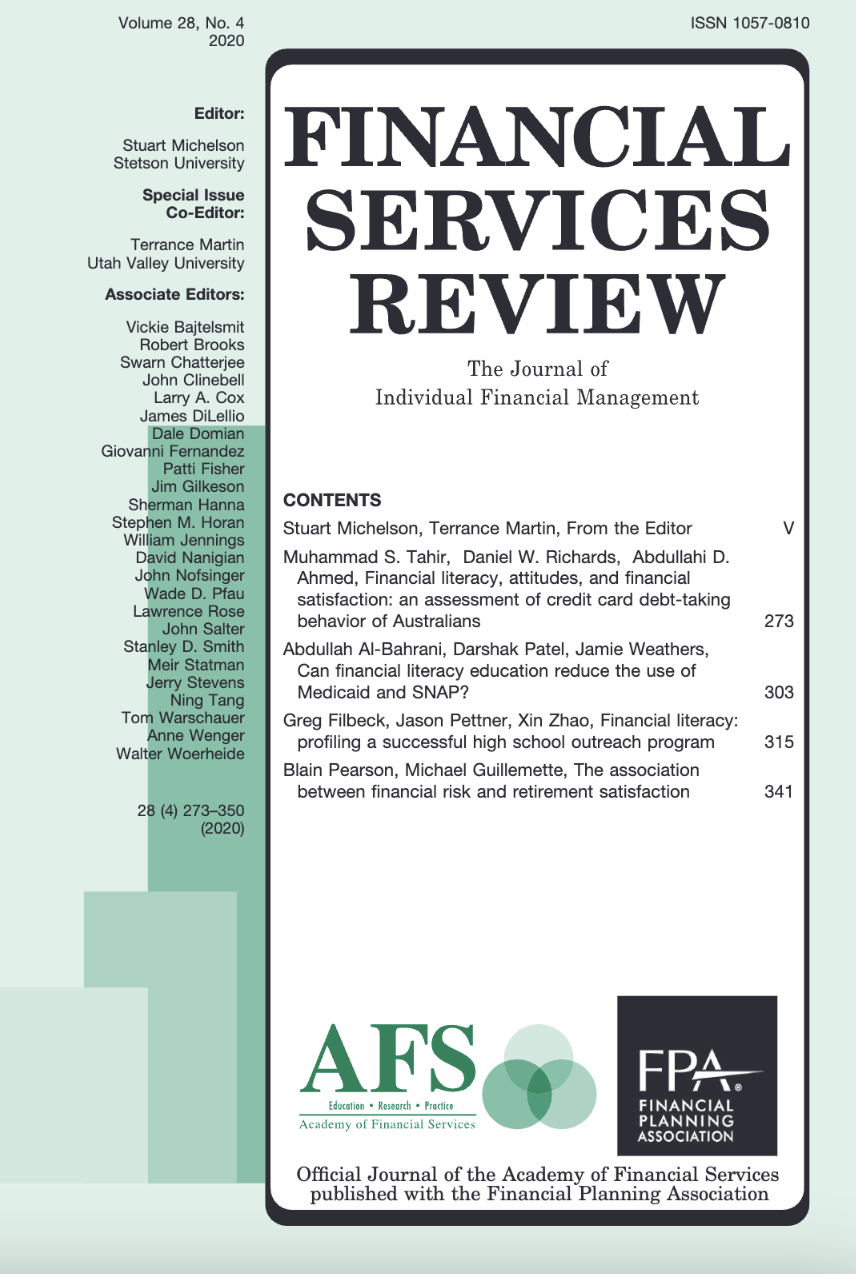Financial literacy, attitudes, and financial satisfaction
an assessment of credit card debt-taking behavior of Australians
DOI:
https://doi.org/10.61190/fsr.v28i4.3433Keywords:
Savings attitude, Financial satisfaction, Credit card debt, Financial literacy, HILDAAbstract
Unpaid credit card debt can be problematic; people should avoid it where possible. Unlike prior studies, this article examines the relative strength of the association of financial literacy, attitude toward balancing spending and savings, and financial satisfaction with credit card debt- taking behavior by analyzing the 2016 wave of the Household, Income and Labor Dynamics in Australia (HILDA) Survey. We find that higher financial literacy is associated with less credit card debt. However, incorporating the other factors reduces this relationship. Our results advise policy-makers to include components in the financial literacy curricula that encourage savings attitude to reduce problematic debt-taking.
Downloads
Published
How to Cite
Issue
Section
License
Copyright (c) 2020 Academy of Financial Services

This work is licensed under a Creative Commons Attribution-NonCommercial 4.0 International License.
Author(s) retain copyright and grant the Journal right of first publication with the work simultaneously licensed under a Creative Commons Attribution-NonCommercial 4.0 International License that allows to share the work with an acknowledgment of the work's authorship and initial publication in this Journal.
This license allows the author to remix, tweak, and build upon the original work non-commercially. The new work(s) must be non-commercial and acknowledge the original work.


